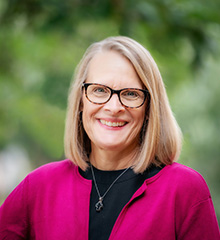Curious about how ministries were innovating in the early months of the COVID-19 pandemic, Luther Seminary’s Faith+Lead team surveyed ministry leaders this past May. More than 700 leaders responded. This is how they were experimenting and what we learned.
There is much to celebrate. Seventy-one percent of leaders reported the challenges of the pandemic became an opportunity to rethink how they were “doing church.” Experiments varied in types and depth by ministry context, but innovation was taking place in rural, suburban, and urban contexts. And even more importantly, ministry leaders were learning from their experiments and seeing promising innovation emerge as they looked to the challenges ahead.
The challenges, however, were significant. The biggest related to the need for human connection, with 23% of leaders noting fellowship as their top challenge, followed by 21% pastoral care and 15% discipleship/faith formation. How to engage congregants in this time of separation, physical distancing, and quarantine was a common concern. Pastors expressed their belief that interpersonal contact is integral to their role, and they worried about the “ministry of presence” being lost during the pandemic. The challenges were frustrating and ignited many of their experiments: pastors explored digital technologies and non-traditional ways of connecting, new people participated in and led caring ministries, and resources were developed for people to be present with each other “at home.” While these experiments did not replace in-person gatherings, they did expand people’s imagination about possibilities and the ways digital platforms can cultivate human connection.
Looking ahead, the most frequently cited challenge (65%) was gathering in-person as faith communities. While worship was the primary concern, this challenge impacted every aspect of church life. Financial concerns, both present and future, were another worry, especially for congregations that were already struggling financially before the pandemic. In the next 12 months, leaders also anticipated the need for discernment and prioritization as the pandemic, as well as the demands for experimenting, continue.
Yet there was a lot of hope, as illustrated in the bounty of stories about promising innovations. Leaders saw the movement of the Holy Spirit and acknowledged the divine call to embrace innovation and change as the church moves forward. Urgency, combined with need and the desire to make meaning out of the current environment, gave birth to a significant number of promising innovations. Leaders experimented with core ministries while simultaneously attending to the national and local realities of their context. Congregations experimented with new adaptive forms of worship and with creative giving strategies that met the needs of the congregation and their surrounding community. Congregations also translated “church-led” ministry programs into resources to accompany people in the world and empower them to “do church” in their own homes. Leaders were being imaginative about how to pray, study God’s word, and wrestle with faith in everyday life when people were physically distanced, which stretched their capacities. As a whole, the local churches surveyed became more focused on asking what is central to their ministry and on encouraging and equipping people to take ownership of their own spiritual journeys.
Promising innovations often emerged out of collaboration and previous work or initiatives. Collaboration took place between clergy, staff, vestries or councils, lay people, and other partners, often working across denominational and hierarchical lines. Many experiments adapted work that leaders had already imagined and/or accelerated ideas that ministries had hoped to do “someday.” Online giving and streaming worship were frequent named examples. And experimenting in multiple areas created an ecology of innovation—or a “ripple effect”—that developed an “innovative ethos” within the congregation. Overall, promising innovations touched various audiences, responded to different needs, and transported learning from one experiment to another. Yet innovation, or the experiments, were not the focus; the central concern was meeting the needs of people and helping them live out their faith.
Above all, this survey revealed that people are the heart of ministry and connections are the soul of congregations. Ministry can happen beyond buildings, and people can be engaged when the current forms of ministry are disrupted. The pandemic, for many ministries, provided the chance to experiment as they discovered and realigned ministry around their core calling.
Want to go deeper into these findings? View the data infographic or download the full report and watch for more coverage on faithlead.org.
[[author title=”About the Author”]]

